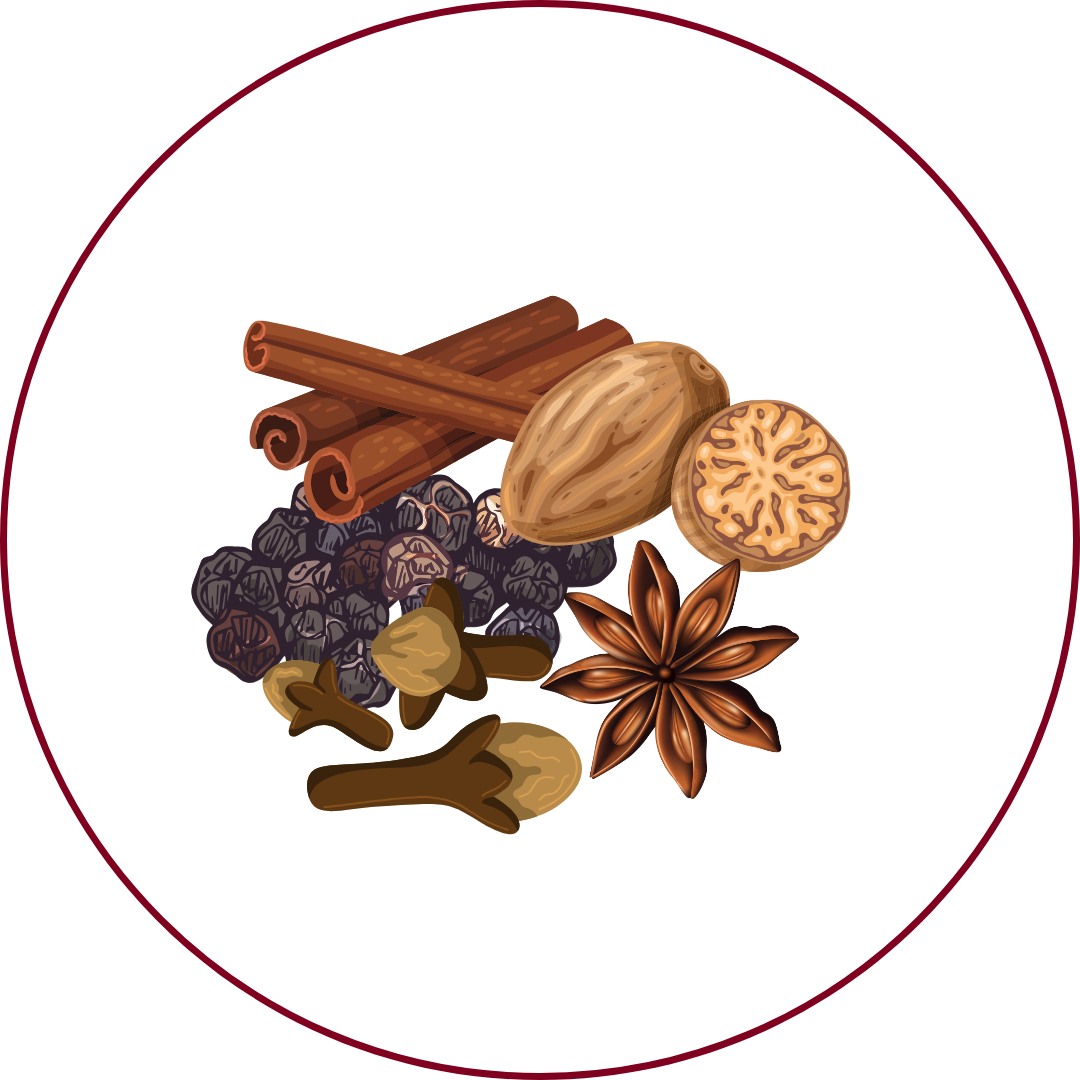Grape Variety
Barbera
"bar-BEH-rah"
Wine Styles
 Sparkling
Sparkling Light White
Light White Full White
Full White Aromatic
Aromatic Rosé
Rosé Light Red
Light Red Medium Red
Medium Red Full Red
Full Red Dessert
DessertAbout Barbera
Origin
Piedmont region, Italy.
History
Barbera is a red Italian wine grape variety that, as of 2000, was the third most-planted red grape variety in Italy (after Sangiovese and Montepulciano). It produces good yields and is known for deep color, full body, low tannins and high levels of acidity. Barbera is believed to have originated in the hills of Monferrato in central Piemonte, Italy, where it has been known since the thirteenth century.
Appearance
Small to medium-sized berries with a deep blue-black hue, growing in compact clusters.
Growing Traits
Barbera is a very vigorous grape variety that can produce high yields (up to 5 tons/acre) and grows well in sandy soils. The best Barberas, however, tend to be from well-pruned vineyards and smaller grape clusters.
Wine Characteristics
Body
4/5
Sweetness
1/5
Tannin
2/5
Acidity
5/5
Alcohol
4/5
Medium to full-bodied with a rich and velvety texture, offering a robust and satisfying mouthfeel. Predominantly dry, with minimal residual sugar, focusing on ripe fruit flavors and subtle sweetness. Low to moderate tannin levels, providing a smooth and approachable structure without excessive astringency. High acidity, contributing to its freshness and enhancing food pairing versatility. Moderate to high alcohol content, typically ranging between 13% and 15%, adding to its robust character.
Taste Profile

Cherry

Blackberry

Plum

Licorice

Spice
Barbera wines are characterized by bright cherry and blackberry flavors, complemented by notes of plum. Subtle hints of licorice and spice add complexity, all balanced by high acidity and a smooth finish.
Food Pairing
Barbera's high acidity and moderate tannins make it an excellent match for a variety of foods. It pairs well with tomato-based dishes like pasta and pizza, grilled meats, and hard cheeses. Its versatility allows it to complement both rich and lighter fare, enhancing the dining experience with its bright fruit flavors and refreshing finish.
Growing Regions

Italy
Piedmont (Barbera d'Asti DOCG, Barbera d'Alba DOC)Emilia-RomagnaLombardy

United States
California (Sierra Foothills, Central Valley)Washington State

Argentina
Mendoza

Australia
VictoriaSouth Australia
Notable Wines & Producers
Barbera d'Asti Superiore Nizza DOCG
Braida di Giacomo Bologna
Vietti
Michele Chiarlo
Barbera d'Alba DOC
Giacomo Conterno
Pio Cesare
Elio Altare
Barbera FAQ
Common questions about this grape variety
What is the origin of Barbera?
+
Piedmont region, Italy.
Is Barbera wine full bodied?
+
Barbera has a body level of 4 out of 5. Which means that Barbera is Moderate to Full bodied.
Is Barbera wine dry or sweet?
+
Barbera has a dryness level of 1 out of 5. Which means that Barbera is Dry.
Where is Barbera wine from?
+
Piedmont region, Italy.
Where is Barbera grown?
+
Barbera is grown in Italy (Piedmont (Barbera d'Asti DOCG, Barbera d'Alba DOC), Emilia-Romagna, Lombardy)United States (California (Sierra Foothills, Central Valley), Washington State)Argentina (Mendoza)Australia (Victoria, South Australia).
What is Barbera like?
+
Barbera wines are characterized by bright cherry and blackberry flavors, complemented by notes of plum. Subtle hints of licorice and spice add complexity, all balanced by high acidity and a smooth finish.
What does Barbera pair with?
+
Barbera's high acidity and moderate tannins make it an excellent match for a variety of foods. It pairs well with tomato-based dishes like pasta and pizza, grilled meats, and hard cheeses. Its versatility allows it to complement both rich and lighter fare, enhancing the dining experience with its bright fruit flavors and refreshing finish.
What does Barbera taste like?
+
Barbera wines are characterized by bright cherry and blackberry flavors, complemented by notes of plum. Subtle hints of licorice and spice add complexity, all balanced by high acidity and a smooth finish.
Take Barbera Knowledge with You
Access detailed grape profiles, tasting notes, and pairing suggestions on your iPhone.
Download on theApp Store